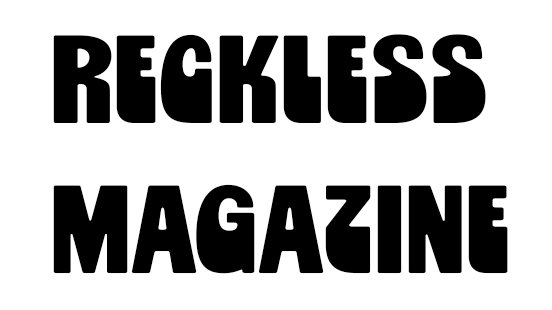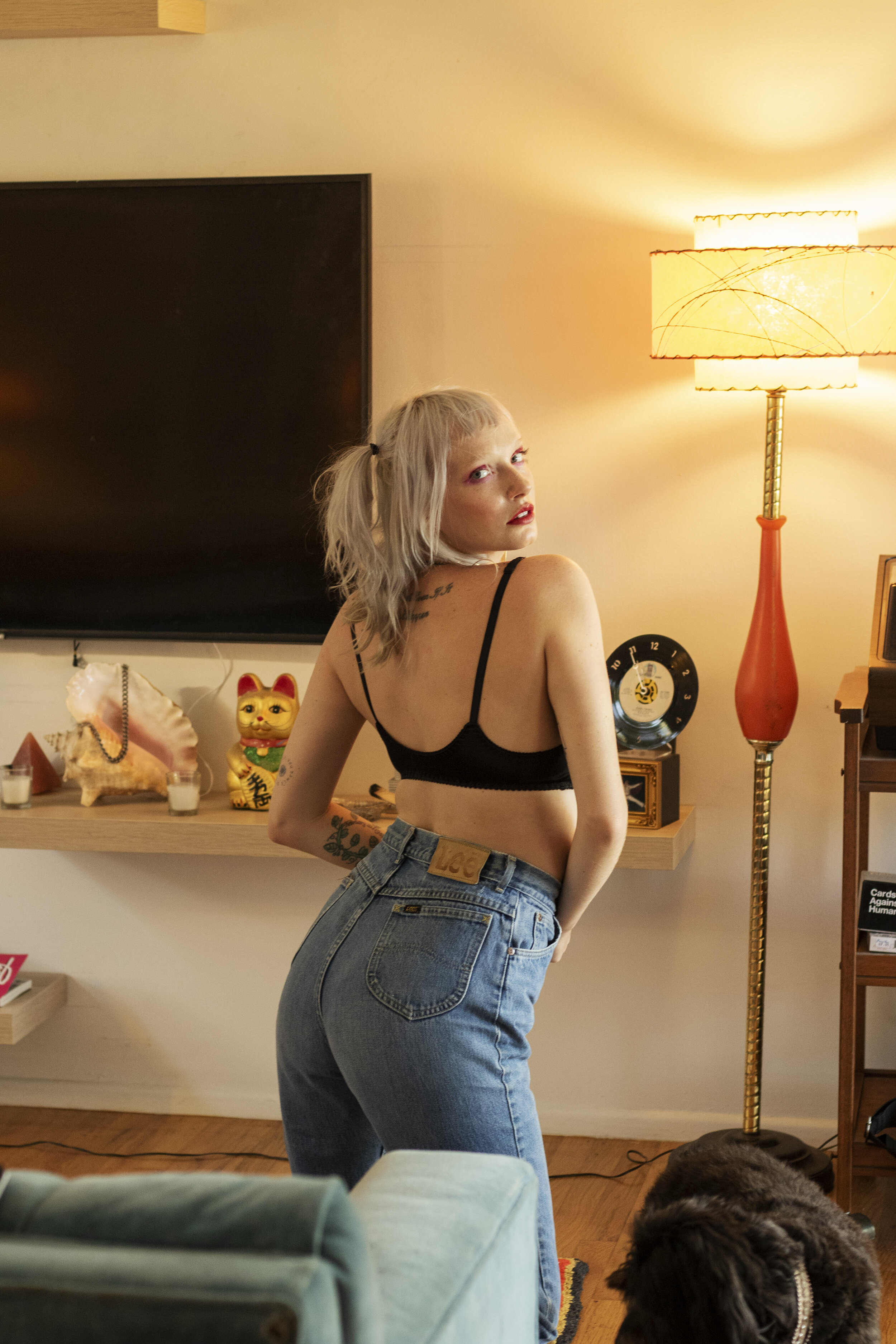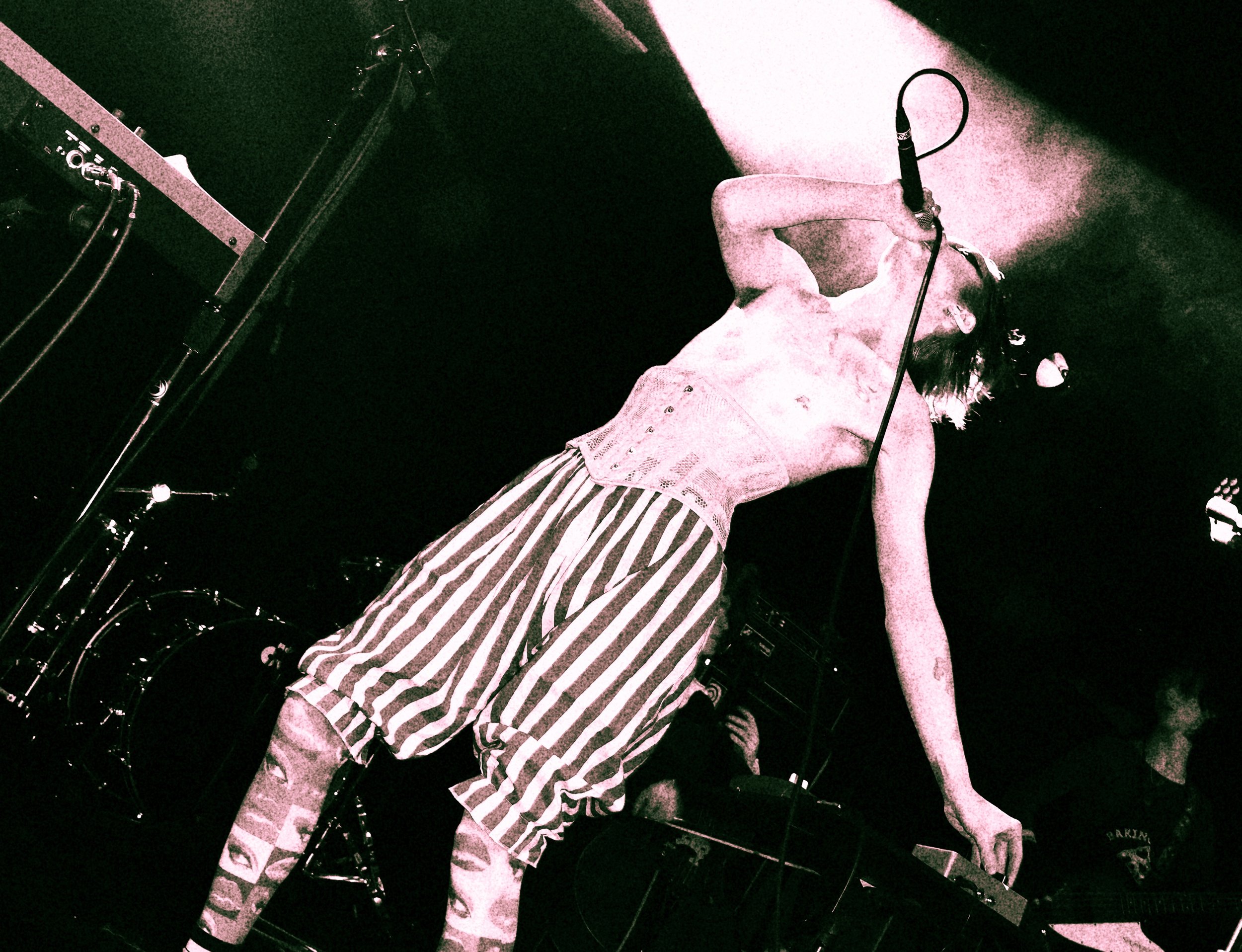For The Weirdos and The Freaks

Growing Up Punk
Pre-gaming with Los angeles dj and musician Gina Kuhn
Written and Photographed by Rick Perez, @goodtimerickstudios
Los Angeles, USA
Gina Kuhn and I met in 2018 through a mutual friend, Priscilla Palafox, while we were at the Desert Daze Music Festival. At first greeting, I remember thinking that she was beautiful and took note of her dope Chicana goth vibe that I wasn’t really used to. She told me she was a DJ in Los Angeles and played some Cumbia and New Wave around the city. When I moved finally moved to L.A., I thought of her and the cool things she was doing and wanted to talk further about who she was.
I joined Gina in pregaming before a gig she had at the Tee Gee Club. She welcomed me into her home with a big smile, a hug, and a glass of whiskey. She introduced me to her best friend, the photographer Adam Rindy, who was seated in the living room. Over our iced whiskey, I asked Gina her life story. I wanted to know how she got into music.
“My friends and I used to jam after school, but nothing serious. We were the crust punks,” Gina says, recounting her life growing up in Whittier, California. “There was a big punk and metal scene where I grew up and there were always backyard gigs. Everything was accessible and DIY and I was excited about it. All I wanted to do was see live music.”
She spoke highly of an old DIY venue called the ‘The Shop’ in East L.A. What she remembers the most was the shelter it created for the outcasts. “It was run by these two old cholas and it was totally illegal. It was known as a safe space for the queer community. Back then, there weren’t a lot of safe spaces for the queer community so it was an important venue.”
As everyone grew older, she explained, the scene morphed into dance music but still kept it punk. “It was the punks that got ahold of some synths. All the musicians that I work with now grew up in punk but we just wanted to dance.”
Although the scene got older and the music style changed, Gina affirms that the message is still the same. “We’ve always wanted to be inclusive. We wanted to be with everyone: the queer community, the weirdos, the freaks, all that. It’s always been the same, we all grew together. It’s a very strong thread.”
As we continued to sip on our whiskey, Gina tells me about a band called Limp Wrist, a group she has been into since she was younger and had a huge impact on her life, “They were one of the biggest bands that played around the DIY venues in East L.A. They were straight queer and for the queer community. Being queer is something I have identified with since I was 15.” Gina continued to open up about how she was questioned her identity as a teenager, “As a young kid I was like ‘I don’t know anything I’m barely having sex’ and I wondered if I was gay or straight or if I even needed to pick. As an adult I tell myself that I don’t need to pick.”
I always felt that way as well. I do identify myself as a gay male, but as I have gotten older and come across people from all kinds of backgrounds, I found out that the majority of them are fluid in some way. Many of those people won’t admit it publicly, and it’s okay. It just proves that there’s no black and white when it comes to sexuality and many people spend their entire lives searching for a community that would accept them. For a creative like Gina Kuhn, she found that community in this L.A. New Wave Punk scene, where she could openly express her fluidity, individuality, and Mexican pride.
“I’m beaner, “ Gina says, smiling proudly, “A big ol’ beaner. I fucking love being Mexican, it’s my favorite thing. Being a Mexican in Los Angeles is like chef’s kiss.”
Although Los Angeles is full of Mexicans and other Latin groups, the pressure to assimilate and forget their heritage is real in many families. “Many Latin-American parents don’t teach their kids Spanish because they need to blend into society. It’s no mystery that they will get treated differently and be placed in different classes in school and parents don’t want them to go through that. They don’t realize but by doing that the culture is being wiped out. It’s fucked up.”
Even though Gina found a home in the L.A. punk scene, she says it was never about her. “I do identify as someone who doesn’t have a lot of representation and is part of a marginalized group, but it’s not about me. It’s about all of us together.”
Most importantly, she emphasizes, the work is never done. “We gave a voice to this marginalized community, now let’s work on the next community. We shed a light on the gay community, let’s focus on the trans community next. Let’s shed light on every issue that arrises.”
In her music and in her life, Gina Kuhn wants to honor the people that came before her and the people who don’t have the opportunities that she’s had. “I want to honor the beaners before me,” she says.





